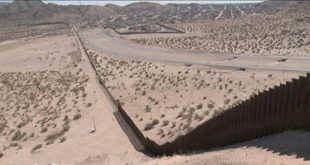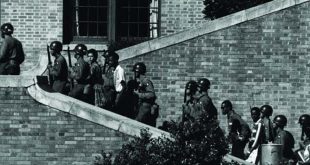SELF DETERMINATION, INDEPENDENCE OR CHAOS
AN EXCHANGE OF IDEAS BETWEEN A RETIRED ATTORNEY AND HIS HIGH SCHOOL STUDENT GRANDSON
International law is bedeviled by the conflict between the “all countries are created equal” and the “all countries are equal but some countries are more equal than others” points of view. The United States is an example of this dichotomy. The American Revolution was an armed rebellion in support of self determination, independence – the “all countries are created equal” rule. Except for France, the Great Powers sat out that conflict out of a shared fear of Great Britain. The Civil War was the reverse – it allowed the North to deny by force of arms the South’s quest for self determination and independence. The Great Powers abstained not wanting America’s sneeze to turn into a European cold, which goes to prove that international law and justice depends on your point of view. Notwithstanding its constitution and the United Nations Charter the former Yugoslavia was allowed to disintegrate by NATO, today’s Great European Power. Serbia, a former constituent republic, has Kosovo, a semiautonomous province with a predominantly Albanian Muslim population within its borders. Kosovo has declared independence which, as of now, is only partially recognized. Should Kosovo’s self determination and independence be allowed? No, if you apply international law. Yes, if you follow world opinion. Yes, if you are pragmatically inclined – Serbia could shrug off the burden of financially propping up a failing state and pass it on to the international community thus avoid dealing with a bellicose minority. Spain has refused to recognize Kosovo – its constitution like Serbia’s prohibits regional self determination and independence. Catalonia, an autonomous region of four northeastern provinces, has been demanding independence and recently held a prohibited non binding referendum with 80% of the votes favoring independence. Eight million Catalans have the highest per capita income in Spain and the region’s economy is by far the most profitable and advanced. Catalans do not wish to financially support Spain’s poorer regions, a flawed monarchy or a Brussels dominated foreign policy. Independence? No, as in Kosovo’s case based on international law. Yes, based on self determination and selfish pragmatism, let the rest of Spain fend for itself. Historically Crimea or better yet the Crimean Peninsula was never part of the Ukraine that has Kiev as its capital. By the 18thCentury it was an independent “Khanate” before being conquered by the Russian Empire and turned into an “oblast”, a controlled province. After the 1917 Revolution it became one of USSR’s Soviet Republics and in 1954 it was administratively merged into the Ukraine; throughout it was the seat of Russia’s naval power. This year during the Ukrainian crisis fueled by unprecedented political corruption pro-Russian forces seized control of Crimea. A referendum seeking self determination and annexation by Russia passed and Vladimir Putin graciously obliged. Was this an exercise in self determination or annexation by force by a not-to-be toyed with Russia? Self determination and independence are nothing but regime change, some good, some bad all born in chaos but so were the wars in Iraq and Afghanistan.
LOUIS J. MORLEDGE, JR. :
Throughout centuries, people have longed for freedom, dignity, and a voice. Since Adam and Eve we have wanted more than is manageable and deserved. But, where is the line in the sand, where do we delineate what is rightfully ours from what was always theirs? Human ambition hasn’t changed but landscapes, territories, kingdoms, regimes, efforts, initiatives have all risen and fallen, in the blink of an eye, casting their dice into the sands of time, leaving what is lost for who is left and what is won for the conquered. In early 1999, Louise Arbour, the ICTY’s lead prosecutor, called Kosovo, a former province of Serbia, “one vast crime scene.” Albanian Muslims are dominant in the region, defecting because of the rejection and dissent from the Serb majority. This unraveling of a controversial relationship has been taken place since the “popular dictatorship” of Slobodan Milosevic, and now has the province declared its independence. In this situation, it is fair to say that the Muslim minority in Kosovo has had a rough go, but does it truly deserve its own nation? After the Holocaust, the great powers ceded Palestine to the newly created Zionist state of Israel and the Mesopotamian- Mediterranean area has been in turmoil ever since. That being said this “nation-state,” alluding to the Clash of Civilizations, seemingly deserves its own “homeland,” and if the territory is where the new nation exists, so be it. Knowing now the alleged war crimes of the Kosovo Liberation Army, i.e. black market auction of Serb bodily organs, reconciliation is impossible and disadvantageous. In short, let them have their selfish independence; it will be bitter sweet for “Fortuna vitrea est, tum cum splendet frangitur “- “Fortune is glass, just when it gleams brightest it shatters”. Meanwhile Catalonia, the north-western shoulder of Spain bordering France is the most affluent province in all of Spain. Catalans, whose taxes pay for the poorer regions’ growth and industrial inequity, was recently called by Joan Vidal, Chief of Staff for Catalonia’s President as being to Spain “what Germany is to Europe”. To respond to yet another tight situation with a lame cliché, “take the money and run”. In Catalonia’s defense, not a single, smaller province wants to pay for another’s less-successful shortcomings; it is not in their “national interest.” Now to take that philosophy one step further and from a US vantage point, no state, out of its own volition, chooses assume the slack of their counterparts, which is why Hamilton’s Plan for National Funding, Assumption and Bank failed to pass in Congress. Legally this perspective is ever-so tricky, but Catalonia, for its own selfish needs, should felicitously, fortuitously carpe diem, and cut the rest of Spain loose. Crimea, the most complicated of the three, is a key Ukrainian port and province on the Black Sea once host of the Yalta Conference which failed to resolve earlier territorial differences. It has struggled with internal violence and leadership change over the past six months. Due to international tension, foreign relations, and human rights issues, the United Nations has grappled with a seeming anachronistic pro-Russian, Red Army, Cold War aggression and the ensuing takeover of the Crimean peninsula. Any clever politically inclined Russian will say that takeover is a “harsh” conclusion, and that the seizure was not really forced – a referendum was passed and Putin annexed the region – problem solved, question answered. No, the area is now a wasteland, quietly holding its breath under the sway of a weak, power-bloated puppet government. In this instance, Vladimir Putin, over-stepped his own clearly enumerated boundaries, and over-exercised his seemingly unlimited power, unleashing pure havoc onto the innocents throughout all of Ukraine. Self-determination, independence, and chaos are all lethal bullets in a world game of Russian roulette. You want to be free? Spin the cylinder, pull the trigger.
 Печат – Лист слободне Србије Политички недељник, актуелна политичка дешавања, друштво, свет, култура.
Печат – Лист слободне Србије Политички недељник, актуелна политичка дешавања, друштво, свет, култура.







